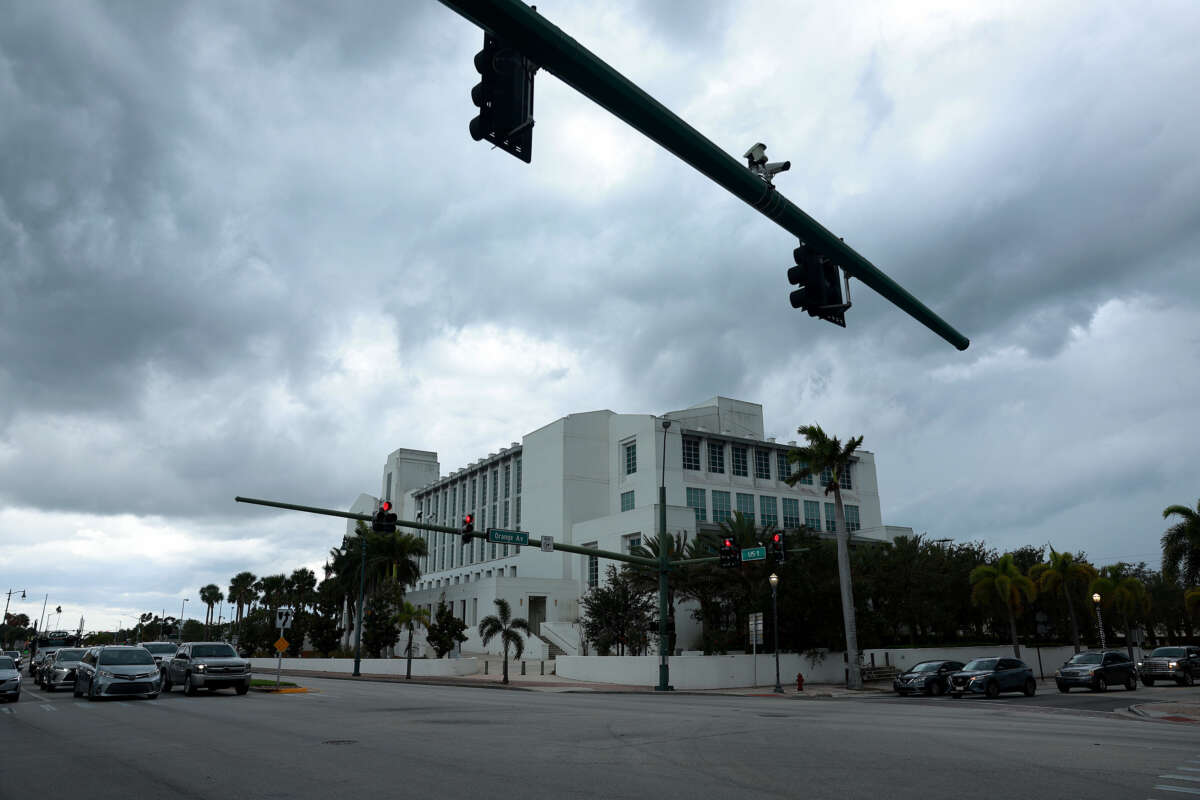Support justice-driven, accurate and transparent news — make a quick donation to Truthout today!
U.S. District Court Judge Aileen Cannon, who is overseeing the case involving former President Donald Trump’s improper storage of government documents at his Mar-a-Lago estate, may have violated the civil rights of a litigant in a separate criminal case — likely providing fuel to those who have already questioned the ability of the Trump-appointed judge to be impartial in his trial.
According to Reuters, Cannon oversaw the jury selection process in June for a man who was accused of distributing images of child sex abuse. During that process, Cannon wouldn’t allow the courtroom to be open to the public, despite objections from both the defense and the prosecution, who argued that, at the very least, the defendant’s close family members should have been allowed in the courtroom.
When reminded by the defense lawyer that the Supreme Court had previously ruled that some of her actions constituted a violation of Sixth Amendment rights, Cannon still pressed forward with her decision to disallow a public hearing. “Your objection is overruled,” she said.
Cannon also failed to swear in the jury pool prior to allowing lawyers to start the jury selection process, an action that could have invalidated the trial altogether, if not for the fact that she caught her mistake.
After recognizing the error, Cannon called for a restart of the process, and determined at that point that it would be fine to allow the defendant’s mother into the courtroom. But the defendant and prosecutors reached a plea deal before a restart was necessary.
These actions indicate that Cannon may be negligent when it comes to enforcing rules in her own courtroom, experts say — and that she may make similar procedural mistakes when it comes to Trump’s case, which is scheduled to go to trial in May of next year, barring any delays.
Cannon, who was appointed to her current post by Trump in 2020, has made other mistakes in the past, including issuing questionable judgments in Trump’s favor in the Mar-a-Lago documents case, which were ultimately overturned by higher courts.
Cannon was widely criticized late last summer for granting a request from Trump, based on dubious claims of executive privilege, for a special master to review the White House documents that the FBI had retrieved from Trump’s estate.
The decision was “an unprecedented intervention by a federal district judge into the middle of an ongoing federal criminal and national security investigation,” University of Texas law professor Stephen Vladeck said at the time.
Cannon was also criticized for limiting that special master from asking for more details from Trump’s legal team, including details on why Trump had made the unfounded claim that the FBI had “planted” some of the documents in his home.
During the special master phase of the case, Cannon’s court made a docketing error that exposed some of the documents that were supposed to be sealed. The error revealed a stark difference between Cannon’s descriptions of certain documents in previous court filings and what the documents actually contained.
“Cannon appeared to have overstated the quantity of ‘personal records’ seized by the FBI that would justify a special master,” said Asha Rangappa, a former FBI special agent and CNN national security analyst.
“Judge Cannon’s rulings legally don’t make sense. They only make sense if you’re trying to help the former president,” Loyola Law School professor Jessica Levinson noted at the time.
“The more we learn, even by accident, the worse things look for Judge Aileen Cannon,” said Harvard Law professor Laurence Tribe.
In December, Cannon’s order for a special master was overturned by the 11th Circuit Court of Appeals. In a unanimous three-judge decision, the court blasted Cannon’s original order, noting that Cannon didn’t have jurisdiction to order the review or to prohibit the FBI from using the documents without review from a special master.
The ruling was particularly critical of the way Cannon had granted a special privilege to Trump, based solely, it seemed, on the fact that he was once president.
“The law is clear,” the order from the court stated. “We cannot write a rule that allows any subject of a search warrant to block government investigations after the execution of the warrant. Nor can we write a rule that allows only former presidents to do so.”
Holding Trump accountable for his illegal war on Iran
The devastating American and Israeli attacks have killed hundreds of Iranians, and the death toll continues to rise.
As independent media, what we do next matters a lot. It’s up to us to report the truth, demand accountability, and reckon with the consequences of U.S. militarism at this cataclysmic historical moment.
Trump may be an authoritarian, but he is not entirely invulnerable, nor are the elected officials who have given him pass after pass. We cannot let him believe for a second longer that he can get away with something this wildly illegal or recklessly dangerous without accountability.
We ask for your support as we carry out our media resistance to unchecked militarism. Please make a tax-deductible one-time or monthly donation to Truthout.
